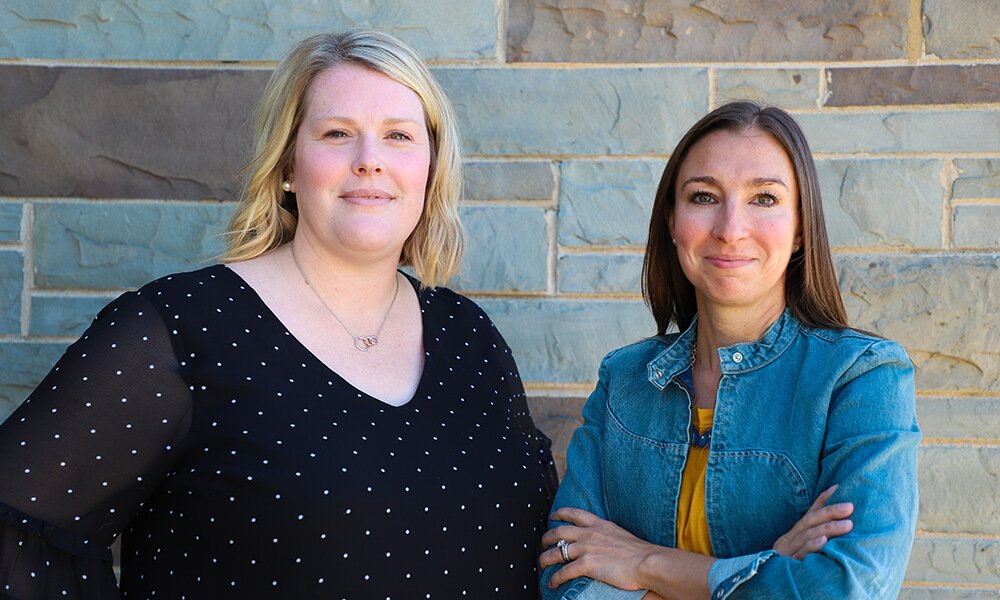
Editor's note: This story first appeared in the fall 2019 issue of the Concordian, the official magazine of Concordia University Wisconsin.
Elizabeth Polzin, EdD, AVP of Academics for Student Success, and Rachel Pickett, PhD, Director of First-Year Experience, are two of the Concordia leaders behind the new Christian Citizen class.
There is a palpable common bond among Concordians. Threads of shared experiences, insider phrases, and campus events embed into the hearts and minds of students, and help shape them into distinctly Concordia alumni leaders and servants. Annual traditions like CIT, Christmas at Concordia, and commencement reinforce the experience. Daily offerings like morning chapel and “In Our Prayers” emails help seal the Concordia deal for life.
For the past two years, faculty have worked together to incorporate a shared curriculum into the Concordia experience so that wherever they are in the world CUW alumni are engaged and informed citizens who are recognized for their compassion, preparedness, and Christian worldview.
“Our aim was to create a common Concordia intellectual experience that lays the foundation for a shared identity among Concordians,” says Dr. Rachel Pickett, PhD,associate professor of psychology and director of first-year experience.
All students are required to take six Liberal Arts core classes that have been identified as essential to a Concordia education. Beyond these, students are offered distributive courses that will sharpen their reasoning and critical thinking skills, and make them better problem solvers.
The required six classes are:
- The Bible
- Christian Faith
- Western Culture and Worldview
- Western Thought and Worldview
- Christian Citizen
- Science and Humanity
In its second year, the Christian Citizen course serves as a freshman seminar and engages students in important questions, discussions, and activities on responsible social action, civic engagement, and moral authority. The four tenets to the freshman seminar course are Mission, Service, Vocation, and Citizenship. It defines citizenship broadly as encouraging students to be good neighbors as well as good citizens.
According to Pickett, “We are all citizens of two kingdoms. The Christian Citizen course dissects what that entails and how our students can hold sacred their morals and values, and participate in the world as engaged, active citizens.”The two-kingdom perspective is the tension that Christians face as subjects to both a spiritual kingdom and an earthly kingdom. Throughout the course, students have opportunities to dissect their own level of civic engagement and gain the tools they need to become confident voices in the public square.
One of the readings “Render Unto Caesar…and Unto God: A Lutheran View of Church and State,” the 92-page manuscript published by The Lutheran Church–Missouri Synod,provides solid Christian context for how to balance both kingdoms effectively.
Another reading, “Evicted: Poverty and Profit in the American City,” the Pulitzer Prize-winning book by Matthew Desmond, provides solid research and cultural context to important issues like poverty and race. The author followed eight Milwaukee families as they struggled to keep a roof over their heads.Through guided discussions and personal reflections, students will learn about critical issues, and will learn how to help solve them as engaged Christians, good neighbors, and informed Concordians.
The fall 2019 Concordian hit mailboxes the end of September. View a PDF version of the magazine here. If you are not on our mailing list, but are interested in receiving a free copy, call 262-243-4333.
—
If this story has inspired you, why not explore how you can help further Concordia's mission through giving.